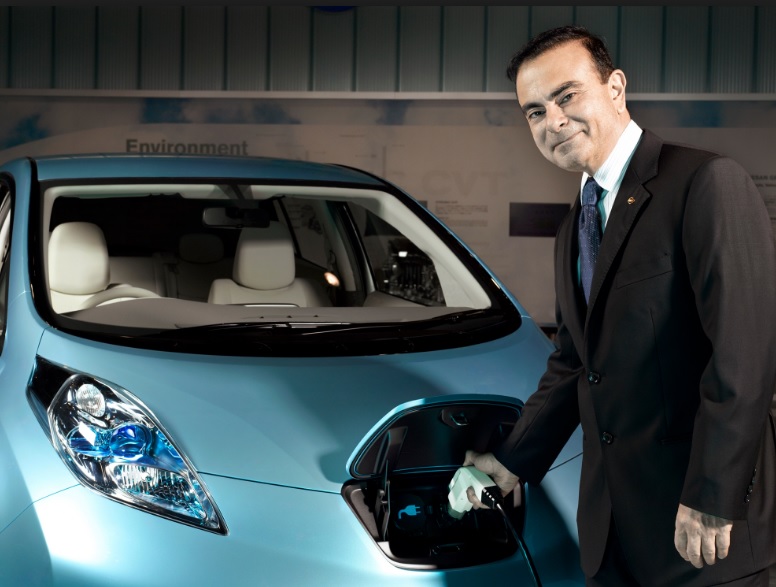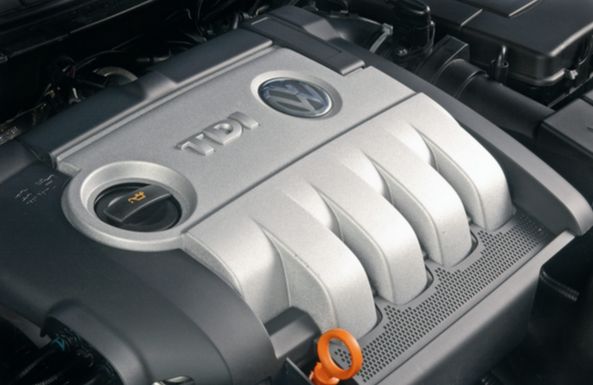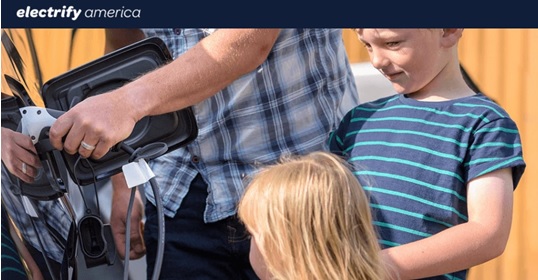Alliance now largest automaker: The Renault-Nissan-Mitsubishi Alliance bumped Volkswagen Group out of the top spot as the world’s largest seller of light-duty vehicles  during 2017. That was made up of 10.61 million new vehicles sold last year with Nissan bringing in 5.82 million, Renault 3.76 million, and its Mitsubishi subsidiary (acquired in 2016) selling 1.03 million. VW came in at 10.53 million and longtime winner Toyota Motor sold 10.2 million. CEO Carlos Ghosn has pledged to tap into economies of scale and double savings by 10 billion euros ($12 billion) by 2022. That assumes annual sales will rise to 14 million vehicles. Sharing parts and consolidating platforms is the foundation it’s being built on, as it usually cuts r&d and manufacturing costs. The Alliance will be rolling out 12 new all-electric models using common platforms by 2022, Ghosn said late last year. Plug-in hybrid models will also be utilized, coming from Mitsubishi’s experience with the Outlander PHEV. Two other utility plug-in hybrids will be coming to market over the next two years. The alliance companies have collectively already sold more than a half million plug-in electrified vehicles.
during 2017. That was made up of 10.61 million new vehicles sold last year with Nissan bringing in 5.82 million, Renault 3.76 million, and its Mitsubishi subsidiary (acquired in 2016) selling 1.03 million. VW came in at 10.53 million and longtime winner Toyota Motor sold 10.2 million. CEO Carlos Ghosn has pledged to tap into economies of scale and double savings by 10 billion euros ($12 billion) by 2022. That assumes annual sales will rise to 14 million vehicles. Sharing parts and consolidating platforms is the foundation it’s being built on, as it usually cuts r&d and manufacturing costs. The Alliance will be rolling out 12 new all-electric models using common platforms by 2022, Ghosn said late last year. Plug-in hybrid models will also be utilized, coming from Mitsubishi’s experience with the Outlander PHEV. Two other utility plug-in hybrids will be coming to market over the next two years. The alliance companies have collectively already sold more than a half million plug-in electrified vehicles.
Uber supporting anti-trafficking groups: Uber’s new CEO Dara Khosrowshahi is looking for ways to pull the ride-hailing giant out of the quagmire, this time encouraging drivers to be aware of human trafficking that may be transported in their vehicles. When drivers log into the app, they’re instructed on how to spot victims of trafficking and best ways to report it to police and anti-trafficking support groups. One of these, Polaris, is Uber’s partner in the campaign. Human trafficking has become of major concern to non-profit groups and government agencies around the world, including the U.S. Khosrowshahi has been working at improving relations with Uber drivers and the public. Drivers can now receive tips, which was always an edge Lyft had over Uber; they can also call a hotline when they have questions.
Veloz launches EV awareness campaign: Veloz, a new California-based nonprofit organization supporting the electric car movement, has hired Division of Labor, an advertising agency headquartered in Sausalito, Calif. The two are working together to develop, test, and provide a strategic plan for a brand-inclusive outreach campaign that will inspire Californians to drive electric. Veloz is taking an approach emphasizing the fun, emotional, and significant benefits EV drivers will experience by driving electric. Made up of industry experts to bring public and private sectors together supporting EV adoption, the group thinks that sales will only go up substantially if consumers know about good purchase choices they can make. A strategic planning phase will continue through May, followed in the summer by implementation of the campaign. As with other initiatives in California, a portion of the campaign budget will go to reaching multi-cultural populations, low-income, and disadvantaged communities.
VW fires chief lobbyist as scandal continues: Volkswagen fired its chief lobbyist,  Thomas Steg, today in response to reports that the company and two competitors had sponsored tests that exposed monkeys and humans to toxic diesel fumes. The company had come under scrutiny again last week after The New York Times reported that VW, BMW, and Daimler had funded an organization called European Research Group on Environment and Health in the Transport Sector (EUGT) to carry out the tests. These methods used in the U.S. were wrong, unethical, and repulsive, VW CEO Matthias Mueller said Monday. The study had been conducted in 2014 to defend diesel following reports that diesel car fumes were carcinogenic. The EUGT study had been dissolved last year. This news was revealed right after Germany’s KBA automotive watchdog has detected illicit emission-control software in Audi’s latest Euro-6 diesel models. KBA has ordered a recall of these 127,000 vehicles, putting more pressure on parent company VW to comply with government mandates in the U.S. and Europe.
Thomas Steg, today in response to reports that the company and two competitors had sponsored tests that exposed monkeys and humans to toxic diesel fumes. The company had come under scrutiny again last week after The New York Times reported that VW, BMW, and Daimler had funded an organization called European Research Group on Environment and Health in the Transport Sector (EUGT) to carry out the tests. These methods used in the U.S. were wrong, unethical, and repulsive, VW CEO Matthias Mueller said Monday. The study had been conducted in 2014 to defend diesel following reports that diesel car fumes were carcinogenic. The EUGT study had been dissolved last year. This news was revealed right after Germany’s KBA automotive watchdog has detected illicit emission-control software in Audi’s latest Euro-6 diesel models. KBA has ordered a recall of these 127,000 vehicles, putting more pressure on parent company VW to comply with government mandates in the U.S. and Europe.

 Volkswagen’s settlement of the its “dirty diesel” scandal took a step forward last week with formation of the Electrify America LLC subsidiary. The new business unit, led by longtime executive Mark McNabb, will carry out $2 billion in investments in zero emission vehicles, infrastructure, and public outreach over the next decade. As part of the settlement, VW has been directed to make its outreach and education programs “brand neutral,” and not become VW electric vehicle marketing campaigns; and, its charging stations are to be accessible to all plug-in electrified vehicles.
Volkswagen’s settlement of the its “dirty diesel” scandal took a step forward last week with formation of the Electrify America LLC subsidiary. The new business unit, led by longtime executive Mark McNabb, will carry out $2 billion in investments in zero emission vehicles, infrastructure, and public outreach over the next decade. As part of the settlement, VW has been directed to make its outreach and education programs “brand neutral,” and not become VW electric vehicle marketing campaigns; and, its charging stations are to be accessible to all plug-in electrified vehicles.